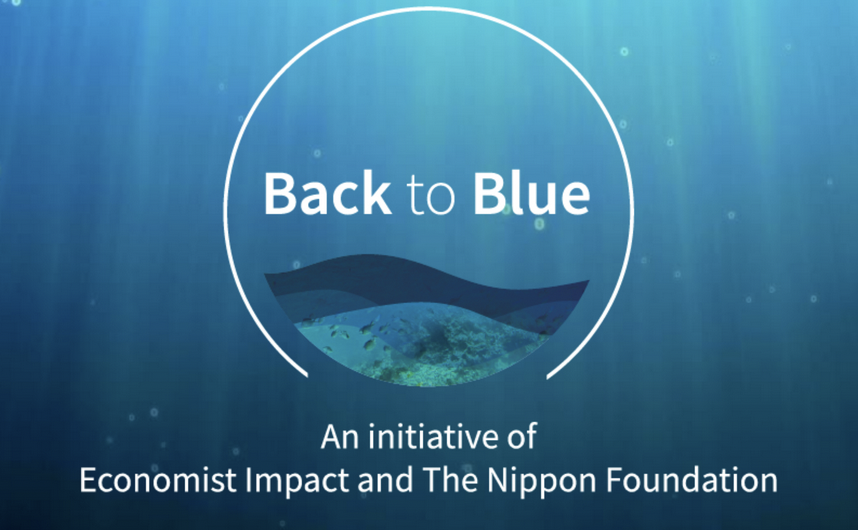In the News
IPEN's work in contributing to the Plastics Treaty and our members' global work to expose the health threats from plastics draws international media attention and influences the treaty negotiations. News reports of our work help to frame the plastics debate as a global crisis from chemicals in plastics. See some highlights from coverage of our work below.
See summaries of media coverage featuring IPEN during the week-long negotiations here.
For media inquiries, contact IPEN Communications Director Charles Margulis at charlesmargulis@ipen.org
IPEN In the News
New York Times
To Make This Tofu, Start by Burning Toxic Plastic
![]() This feature story highlighted threats to community health from plastic waste burning, centering around IPEN's study showing high dioxin levels in chicken eggs near plastics burning facilities. IPEN's Science and Technical adviser Lee Bell and Steering Committee member Yuyun Ismawati were quoted.
This feature story highlighted threats to community health from plastic waste burning, centering around IPEN's study showing high dioxin levels in chicken eggs near plastics burning facilities. IPEN's Science and Technical adviser Lee Bell and Steering Committee member Yuyun Ismawati were quoted.
Indonesia Lets Plastic Burning Continue Despite Warning on Toxins
A follow-up story showing ongoing threats to health and the environment centers on authors of IPEN's study noting the need to end plastic waste burning.
The World Is Awash in Plastic. Nations Plan a Treaty to Fix That
IPEN Co-Chair Tadesse Amera is quoted in this story on the UNEA adoption of the Plastics Treaty resolution.
“When we talk about plastics, we’re really talking about chemicals and carbon. Africa is not a major producer of chemicals or plastics,” Mr. Amera said. But companies are flooding the continent with plastic “with no thought about after-use. That should be the responsibility of the producer or importer.”
Tadesse Amera, IPEN Co-Chair
Reuters
 IPEN worked for months with a team of reporters for this international news wire special investigation of the plastics industry’s decades-long failure to push recycling of plastics.
IPEN worked for months with a team of reporters for this international news wire special investigation of the plastics industry’s decades-long failure to push recycling of plastics.
"Environmental groups tracking chemical pollutants say incinerating plastic this way produces significant carbon emissions and releases dioxins associated with the chemicals in the plastic. This is in no way “recycling,” said Lee Bell, advisor to the International Pollutants Elimination Network (IPEN), a global network of public interest groups working to eliminate toxic pollutants."
After much praised waste export ban, Australia under fire for shipping plastic trash as 'fuel'
This Reuters exclusive report followed after an investigation by IPEN and our partners in Australia and the Philippines exposed Australia's false claims around ending plastic waste shipments.
"Countries in Southeast Asia continue to be the dumping ground of wastes and discards for the developed and industrialised world," said Aileen Lucero, National Coordinator for EcoWaste Coalition in the Philippines. "This not only exacerbates environmental and health risks but also amplifies the waste crisis facing countries like the Philippines."
Associated Press
Advanced recycling: Plastic crisis solution or distraction?
(reprinted in the Los Angeles Times, in Spanish)
I![]() PEN met with the reporter ton provide background and data and our Science and Technical Adviser Lee Bell is cited in the story.
PEN met with the reporter ton provide background and data and our Science and Technical Adviser Lee Bell is cited in the story.
"Lee Bell, a policy advisor for the International Pollutants Elimination Network, thinks chemical recycling is a public relations exercise by the petrochemical industry. The purpose is to dissuade regulators from capping plastics production. Making plastic could become even more important to the fossil fuel industry as climate change puts pressure on their transportation fuels, Bell said."
Washington Post
U.N. adopts historic resolution aimed at ending plastic pollution
![]() IPEN's international coordinator Bjorn Beeler is quoted in this story on UNEA adopting the Plastics Treaty resolution.
IPEN's international coordinator Bjorn Beeler is quoted in this story on UNEA adopting the Plastics Treaty resolution.
The Guardian
‘Oil spills of our time’: experts sound alarm about plastic lost in cargo ship disasters
 A study by IPEN and our member group Centre for Environmental Justice (CEJ) showing health and environmental impacts from a container ship spill of chemicals and plastics off the coast of Sri Lanka was featured in this Guardian report, with a headline taken directly from IPEN’s press release.
A study by IPEN and our member group Centre for Environmental Justice (CEJ) showing health and environmental impacts from a container ship spill of chemicals and plastics off the coast of Sri Lanka was featured in this Guardian report, with a headline taken directly from IPEN’s press release.
Dr Therese Karlsson, a science adviser at IPEN and co-author of the study, said: “Until now, there hasn’t been any publicly available chemical analysis of the spill. The chemicals have largely been overlooked because they are not visible.”...Chalani Rubesinghe of CEJ said the disaster had exposed the complexity of shipping chemicals. “These accidents have huge consequences on the environment and economies.”
Vice World News
‘The Smoke Enters Your Body’: A Toxic Trash Site in Kenya Is Making Women Sick
![]() IPEN worked with the journalist to help frame this story and our Plastic Working Group Co-Chair Griffins Ochieng, Director of our member group Centre for Environmental Justice and Development (CEJAD) in Kenya, is quoted
IPEN worked with the journalist to help frame this story and our Plastic Working Group Co-Chair Griffins Ochieng, Director of our member group Centre for Environmental Justice and Development (CEJAD) in Kenya, is quoted
“This is a global problem. Any dumpsite – anywhere there is plastic pollution – women will be impacted.” While men frequently take on more supervisory roles, women often spend the entire day rummaging. “They’re in the thick of things… but the environment is a threat to their human health.”
- Griffins Ochieng, executive director for the Centre for Environmental Justice and Development.
The Standard (Nairobi)
Addressing plastic crisis in Africa goes beyond mere waste management
 As a follow-up to attendance by IPEN member groups at the African Ministerial Conference on the Environment (AMCEN), Patricia Kombo of CEJAD wrote this op-ed for the Nairobi Standard.
As a follow-up to attendance by IPEN member groups at the African Ministerial Conference on the Environment (AMCEN), Patricia Kombo of CEJAD wrote this op-ed for the Nairobi Standard.
EL PAÍS
Las grandes empresas en México presionan para deslindarse de la contaminación por plásticos
![]() IPEN Executive Committee member Sofia Chavez is quoted in this investigation exposing industry’s attempts to evade responsibility for plastic wastes in one of the world’s largest and most prestigious Spanish language media outlets.
IPEN Executive Committee member Sofia Chavez is quoted in this investigation exposing industry’s attempts to evade responsibility for plastic wastes in one of the world’s largest and most prestigious Spanish language media outlets.
“Basta leer algunos de los artículos, tanto los que quieren modificar en la Ley General de Residuos, como de la Economía Circular, y encuentras que ahí está todo lo que la industria ha estado buscando hacer durante años”, dice Sofía Chávez, directora de la ONG Casa Cem-Vias Verdes.
The Island (Sri Lanka)
Harmful BPA found in baby bottles, cups
A study by IPEN with our member group Center for Environmental Justice and other IPEN members from Bangladesh, Bhutan, China, Indonesia, Malaysia, Russia, and Tanzania is highlighted in this story on threats from the plastics chemical BPA.
The Economist Blog: Back to Blue
The invisible ocean crisis of toxic chemicals used in plastics

IPEN Science Advisor Therese Karlsson wrote this recent piece explaining how plastics transport toxic chemicals globally.
Environmental Health News
How the United Nations could avoid silencing voices during Plastic Treaty negotiations
![]() IPEN Co-Chair Tadesse Amera co-wrote this op-ed (with a version also placed in Chemical Watch) to expose threats to participation, in particular to groups from the Global South, in the Plastics Treaty process. As a result, the Treaty adopted more open participation policies.
IPEN Co-Chair Tadesse Amera co-wrote this op-ed (with a version also placed in Chemical Watch) to expose threats to participation, in particular to groups from the Global South, in the Plastics Treaty process. As a result, the Treaty adopted more open participation policies.

